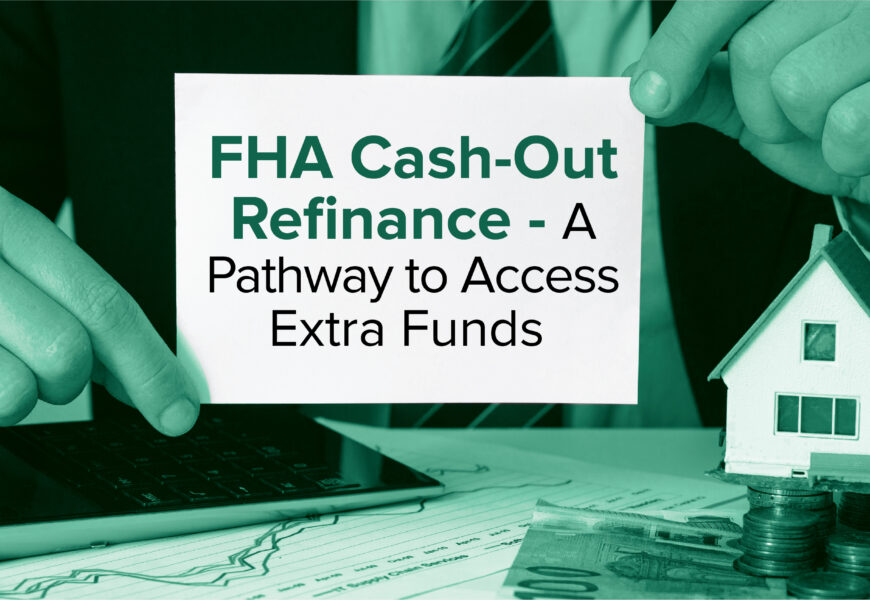FHA cash-out refinancing can be your option if you lack funds for your current financial obligations. With the FHA cash-out refinancing, you can refinance your mortgage and get access to cash for the equity in your home. In the current article, let us unpack the requirements and benefits of FHA cash-out refinancing.
FHA cash-out refinancing
FHA cash-out refinancing is a unique type of mortgage refinancing insured by the Federal Housing Administration (FHA). The homeowner is choosing to go with cash-out- refinancing can replace their current mortgage with a new one and get a more significant loan amount. The difference between the latest mortgage and the remaining balance of the current loan can be obtained as a cash for your financial needs.
Are you eligible for FHA cashout refinance?
If you want to access some extra funds on your home equity, consider conducting an eligibility check for FHA cash-out refinancing. Like your first mortgage, applying for refinancing needs you to meet some eligibility requirements.
- Credit score: Many mortgage providers have specific credit score requirements to qualify for a refinance mortgage. It can be closer to 580. However, you need a minimum credit score of 500 to be eligible for cash-out refinance.
- Debt income ratio: The requirements of DTI vary per lender depending on the credit score. Many lenders want their borrowers to have a 50% or lower debt-equity ratio. However, there is enough possibility for borrowers to qualify for FHA cash-out refinancing even with a high debt-equity ratio.
- Loan to value: The loan to value is the amount of home equity you have compared to its current value. You can qualify for FHA cash-out refinance when your LTV does not exceed 80% of the home value.
- Payment history: The mortgage lenders check your payment history to approve the new loan. To stand eligible for the loan, you should not have any late or missed payments towards your home mortgage in the past 12 months.
- Length of residence: You should have lived in your home for at least a period of one year to qualify for the loan.
The pros and cons of FHA cash-out refinancing.
Pros
- Improved cash flow: By replacing your current loan with a refinance mortgage, you can lower your monthly repayments towards the loan. Lowered monthly payments can offer you extra cash each month, improving your cash flows. The surplus funds in your pocket can be used for savings or handling other expenses.
- Lower interest rates: FHA cash-out refinancing allows you to fetch the new loan at favorable terms and lower interest rates than your current loan.
- Potential Tax Benefits: Interest paid on the loan, including the additional amount borrowed through a cash-out refinance, may be subjected to tax deductions. You can reduce the payable tax after deductible interest.
Cons
Additional costs: FHA cash-out refinancing is also subject to payment of upfront costs and fees, including title insurance, appraisal fees, origination fees, and closing costs. You should compare these with multiple lenders and review these costs to outweigh the benefits with expenses.














